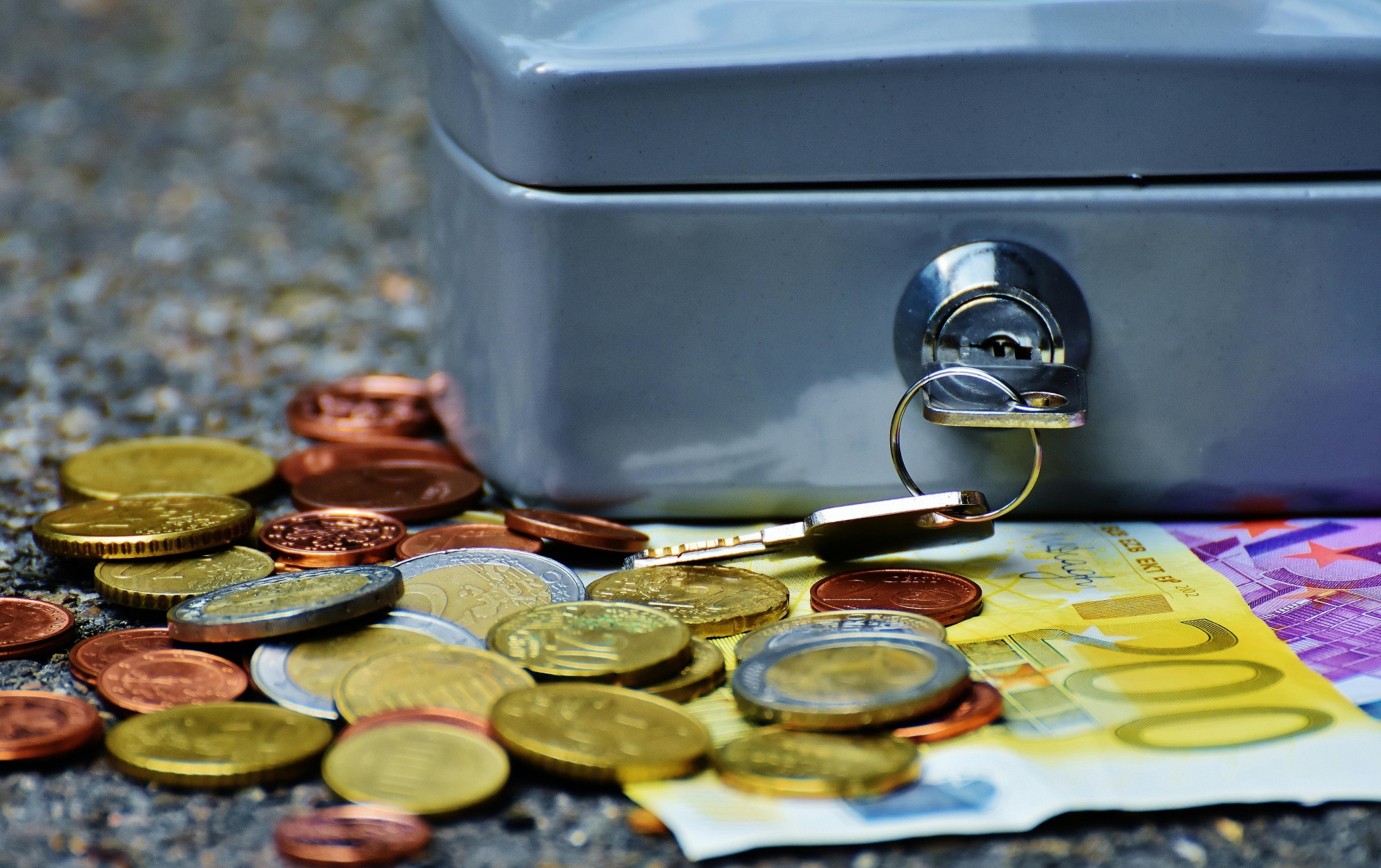Save
Ways to save money: How can I live cheaply?
It can be hard to find ways to save money, especially with the rising cost of living. There’s no instant solution that can save you a lot of money, but practising frugal living can save you thousands of dollars in the long run.
Ways to save money: How can I live cheaply?
It can be hard to find ways to save money, especially with the rising cost of living. There’s no instant solution that can save you a lot of money, but practising frugal living can save you thousands of dollars in the long run.

It may take a lot of effort on your part but practising frugality in different aspects of your life can change the way you manage your money.
Consider the ideas below to live cheaply.
Understand your expenses
Before you take any action with your finances, it’s important to first understand your relationship with money. Keep track of all your financial transactions and understand how money flows in and out of your deposit account or pocket.
You can do this the traditional way by writing down all your expenses in a notebook or planner. You may also type up everything in a spreadsheet or download an application on your mobile device.

Once you’ve noted all your expenses, spend time categorising them into four groups: recurring necessities, recurring expenses, recurring debt and negotiables.
- Recurring necessities refer to expenses you need to survive (food and shelter). These include groceries, utility bills and rent.
- Recurring debt includes mortgage, credit card and loan payments.
- Recurring expenses refer to expenses that repeat but may not necessarily be regularly scheduled, such as petrol refills, car maintenance and repair, public transportation fees and gym memberships.
- Negotiables are expenses that may be removed or further reduced such as nightly take-outs and weekly dinner or drinks with friends.
You may add another category for unforeseen expenses, such as late payment penalties or a traffic infringement fine.
With your expenses properly categorised, work on dramatically reducing your unplanned and negotiable expenses and find ways to reduce the amount you pay for the recurring expenses. You may achieve this by planning your spending.
Plan your spending
Now that you’re aware of how you spend money, you need to create a plan to control it.
Create a budget and spending schedule according to your existing expenses and make sure to stick to it. Take the average of each expense and make it your budget.
For instance, if you spent an average of $92.50 for your weekly groceries in the past six months, commit to making that amount your grocery shopping limit. You may do the same with your utility bills and other expenses.
When you manage to spend less than the budget on any of your usual expenses, pop the extra into your savings account.
If you commit to your budget and even actively try to reduce it, you will save more money in the long term.
Find ways to save
It may seem difficult to stick to a budget, especially with the rising cost of living, but there are many frugal things you can do to save money.
Find cheaper alternatives
Cheaper doesn’t necessarily mean that the quality is lower. It could simply be sold at a discounted price in another store or a product from the brand’s competitor.
Before purchasing an item, pause to consider whether you’re getting the best deal or there’s a cheaper alternative for it. However, you should also consider the product’s quality before buying an alternative.
Practice good maintenance
Take good care of your belongings so that they last longer. Make it a habit to routinely maintain any item with mechanical and technological parts, such as your car, bike and even your gadgets.
You can also keep clothes, shoes and bags in good condition by using the right products, such as leather cleaners and conditioners to protect products made of leather.
Keeping an item in the best condition possible can prolong its life and keep you from repeatedly spending for a replacement.
Consider second-hand items where applicable
You may also consider buying slightly used pre-loved items from garage sales, flea markets and thrift stores. Just make sure to check for any damage to ensure that the item is still in good condition when you buy it.
Some people are good at protecting and maintaining their belongings so you may find a used item that looks and works good as new.
Alter your spending habits
Improve your relationship with money by changing the way you spend and controlling impulse spending.
Try the 30-day rule
Take advantage of the potential savings that delayed gratification can offer by applying the 30-day rule.
The rule requires you to give yourself 30 days to think about pushing through a purchase you want but may not need, and the delay can help you discover better deals or products. It also allows you to settle your thoughts and kills the urge for impulse spending with consistent practice.
Quit unhealthy habits
If your habit is unhealthy, chances are that you’ll have to stop doing it at some point anyway – so why not quit while it’s early?
Eliminating your expenses for vices and bad habits can free up your money and increase the amount you can save.
Explore Nest Egg for more tips on how to save money.
About the author

About the author


How to budget
Help to Buy switches on in WA: What the shared‑equity rollout means for banks, brokers and builders
Western Australia has joined the federal Help to Buy program, flipping the switch on a new stream of first‑home demand. The shared‑equity model reshapes risk, margins and distribution for lenders and ...Read more

How to budget
Australia’s first-home buyer reset: how policy, rates and competition will shape the rebound
After a flat first half of 2025, first-home buyer (FHB) activity is set to lift—nudged by a five per cent deposit guarantee and the Reserve Bank’s first rate cut since 2020. But a rebound won’t be ...Read more

How to budget
Australians Seek Bargains to Stretch Christmas Budgets Amid Rising Costs
As the festive season approaches, Australians are preparing to spend more on Christmas gifts and festive feasts compared to previous years. However, despite larger budgets, many are still on the hunt ...Read more

How to budget
Australians grapple with stubborn cost of living in 2025
In a year marked by persistent financial strain, only a meagre 7% of Australians believe that the cost of living has improved, according to the 2025 Household Budget Barometer released by Compare the ...Read more

How to budget
How to take control amid rising electricity costs
Energy bills are increasing for almost nine in ten Australians, forcing many to think outside the box when it comes to keeping costs and electricity usage down. While some are resorting to showering ...Read more

How to budget
Aussies get savvy with energy hacks as costs surge
As energy costs continue to climb across Australia, a recent study commissioned by Zip Co (ASX: ZIP) reveals that 91% of Australians are actively seeking innovative ways to reduce their energy billsRead more

How to budget
The psychology behind saving: Understanding and overcoming common barriers
Saving money is a fundamental aspect of financial security, yet many people find it difficult to set aside a portion of their income regularly. Read more

How to budget
Smart saving tips for first home buyers in Australia
Purchasing your first home is a significant milestone, but the path to homeownership in Australia can seem daunting due to the high property prices and competitive market. However, with the right ...Read more

How to budget
Help to Buy switches on in WA: What the shared‑equity rollout means for banks, brokers and builders
Western Australia has joined the federal Help to Buy program, flipping the switch on a new stream of first‑home demand. The shared‑equity model reshapes risk, margins and distribution for lenders and ...Read more

How to budget
Australia’s first-home buyer reset: how policy, rates and competition will shape the rebound
After a flat first half of 2025, first-home buyer (FHB) activity is set to lift—nudged by a five per cent deposit guarantee and the Reserve Bank’s first rate cut since 2020. But a rebound won’t be ...Read more

How to budget
Australians Seek Bargains to Stretch Christmas Budgets Amid Rising Costs
As the festive season approaches, Australians are preparing to spend more on Christmas gifts and festive feasts compared to previous years. However, despite larger budgets, many are still on the hunt ...Read more

How to budget
Australians grapple with stubborn cost of living in 2025
In a year marked by persistent financial strain, only a meagre 7% of Australians believe that the cost of living has improved, according to the 2025 Household Budget Barometer released by Compare the ...Read more

How to budget
How to take control amid rising electricity costs
Energy bills are increasing for almost nine in ten Australians, forcing many to think outside the box when it comes to keeping costs and electricity usage down. While some are resorting to showering ...Read more

How to budget
Aussies get savvy with energy hacks as costs surge
As energy costs continue to climb across Australia, a recent study commissioned by Zip Co (ASX: ZIP) reveals that 91% of Australians are actively seeking innovative ways to reduce their energy billsRead more

How to budget
The psychology behind saving: Understanding and overcoming common barriers
Saving money is a fundamental aspect of financial security, yet many people find it difficult to set aside a portion of their income regularly. Read more

How to budget
Smart saving tips for first home buyers in Australia
Purchasing your first home is a significant milestone, but the path to homeownership in Australia can seem daunting due to the high property prices and competitive market. However, with the right ...Read more













